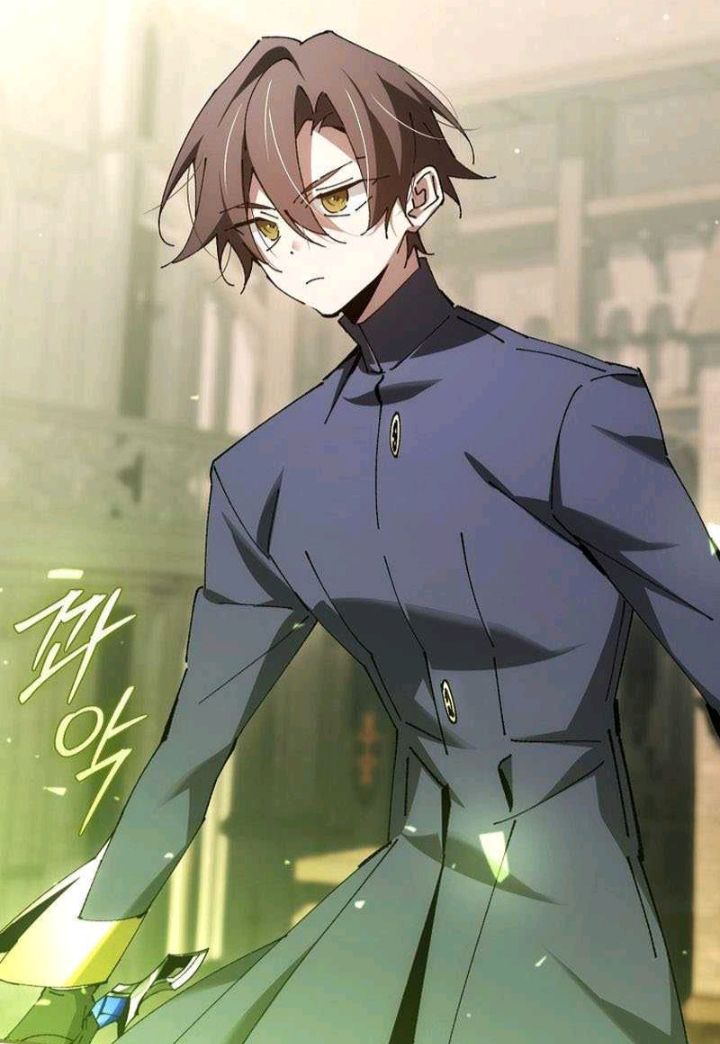The transformation from an ordinary student to a revered leader is a captivating story that resonates across various genres. The journey of becoming a genius commander at an academy represents not just the development of a character’s military and leadership skills but also their personal growth and mental fortitude. In this article, we delve into the intricate path of self-discovery, strategic mastery, and leadership that marks the protagonist’s evolution from a regular cadet to a genius commander, unraveling each stage of their journey in detail.
The Beginning: A Reluctant Student
The story begins with an underdog. At the start of the journey, the protagonist isn’t necessarily an outstanding student or someone who stands out among their peers. They are simply an individual who is trying to make their way through an academy filled with more experienced and highly skilled individuals. Whether it’s due to a lack of natural talent, overwhelming competition, or self-doubt, the character’s path isn’t easy at first.
Initially, they might struggle with basic concepts of strategy and leadership. Unlike their peers, who may have been groomed for greatness from a young age, the protagonist must grapple with the weight of their perceived inadequacy. This early struggle, however, serves as the foundation for their eventual success. They aren’t defeated by their failures; instead, they learn from them. Like a sculptor chiseling away at stone, the protagonist’s weaknesses slowly become their strengths. Every failure becomes a lesson in disguise, and the resolve to improve hardens with each setback.
The academy itself is a crucible for these aspiring leaders. It’s a place of fierce competition where everyone is vying for the title of the top student or future leader. In such an environment, the protagonist’s initial struggles don’t define their potential; instead, they set the stage for the kind of transformation that will unfold over the course of their training. Just like a blank canvas being prepared for an extraordinary painting, the protagonist begins their journey as an empty vessel, ready to be filled with knowledge and experiences that will shape them into something remarkable.
The Academy’s Challenges: Learning the Basics of Strategy and Leadership
At the academy, the protagonist is thrown into a world that requires more than just physical skill. The true mark of a leader is not simply one’s ability to fight or command—it’s the ability to think strategically and adapt quickly to changing circumstances. The protagonist must first master the foundational elements of leadership and military strategy. These include understanding the terrain, studying historical battles, learning to manage a team, and gaining insight into the psychological aspects of leadership.
In this phase of their training, the protagonist is exposed to a range of tactics, from ancient battle strategies to modern military techniques. Initially, they might struggle with memorizing complex strategies or understanding the subtleties of maneuvering on the battlefield. However, through relentless practice and persistence, they begin to see patterns emerge. The key to becoming a genius commander lies in recognizing these patterns early and learning how to apply them effectively.
Moreover, leadership isn’t just about issuing orders; it’s about understanding people. The protagonist learns that to lead effectively, they must understand the strengths, weaknesses, and motivations of their team members. This realization is a pivotal moment. They start recognizing that leadership isn’t a one-size-fits-all concept. A good leader adapts their approach to the individual needs of their subordinates. It’s during this phase that the protagonist begins to build the essential emotional intelligence that will later define their success as a commander.
As the protagonist progresses, they begin to emerge from their initial doubts and insecurities. They start seeing the bigger picture, realizing that leadership isn’t about knowing everything—it’s about knowing how to adapt, inspire, and make decisions under pressure. They understand that being a genius commander requires an unwavering ability to make the right choices when the stakes are high.
The Evolution of a Genius: Innovation in Strategy and Command
The protagonist’s true genius begins to shine as they start integrating creativity into their strategies. While they may have learned the traditional ways of combat and leadership, they recognize that the battlefield is constantly changing. To stay ahead of their competitors, they must think outside the box. Innovation becomes the hallmark of their leadership.
Rather than simply following textbook strategies, the protagonist starts to experiment with new ideas. They might challenge conventional thinking by testing strategies that have never been tried before or by incorporating unconventional methods into their approach. For example, they may combine the knowledge of psychological warfare with military tactics to outmaneuver their opponents. This ability to innovate and think critically separates them from others who rely solely on tradition.
What makes a genius commander truly exceptional isn’t just their ability to understand and apply existing strategies; it’s their ability to adapt to new circumstances. A battle can be unpredictable, and in those moments of uncertainty, it’s the genius commander who thrives. The protagonist begins to demonstrate this adaptability, developing the confidence to trust their instincts and make decisions in real-time. They know that success lies in the ability to react quickly, change plans on the fly, and take calculated risks when necessary.
Innovation is also key in their relationships with their team. The protagonist begins to realize that a commander’s greatest weapon isn’t just their mind; it’s their ability to communicate and unite their forces. By constantly improving their leadership techniques, they begin to inspire loyalty and commitment in their subordinates. They learn how to rally their troops, boost morale during difficult times, and make everyone feel like they’re working toward a common goal. This evolution from a student to a leader marks the transition from ordinary to extraordinary.
The Real-World Test: Putting Knowledge into Action
The true measure of any commander comes when they are put to the test in real-world situations. It’s one thing to learn about strategy and leadership in theory, but it’s another entirely to apply those lessons under pressure. The protagonist’s journey culminates in a high-stakes mission or battle where everything they’ve learned is put to the test.
This moment represents the pinnacle of their transformation. In the heat of battle or during a critical assignment, the protagonist demonstrates their strategic genius and leadership capabilities. They are no longer just an exceptional student—they are a commander in their own right, capable of directing forces, managing chaos, and achieving victory. Their tactical brilliance shines through as they outthink their enemies, make decisive moves, and lead their team to success.
Perhaps what makes this moment even more significant is the realization that the protagonist’s growth has not just been intellectual. They’ve also developed emotionally and psychologically. The genius commander understands the importance of staying calm under pressure, of reading the battlefield not just in terms of terrain but in terms of human dynamics. They have learned to balance intellect with empathy, strength with compassion, and decisiveness with patience.
The Legacy of a Genius Commander
The protagonist’s journey doesn’t end with their victory. Instead, it marks the beginning of their legacy. As a genius commander, they become a role model for future generations of students at the academy. Their leadership style is studied, their decisions analyzed, and their tactics revered as some of the best in history. But perhaps the most important legacy they leave behind is the realization that becoming a genius commander isn’t just about being the smartest or most talented—it’s about persistence, creativity, and the willingness to learn from every experience.
Through their journey, the protagonist has not only earned the respect of their peers and mentors but also their own self-respect. They have evolved from an unsure student into a confident and capable leader. Their success serves as a testament to the power of growth, both as a strategist and as an individual.
Conclusion
The path to becoming a genius commander at the academy is long, challenging, and filled with obstacles, but it is also a story of personal and intellectual growth. From the beginning, the protagonist’s journey is shaped by determination, failure, and resilience. Through their unwavering pursuit of knowledge, creativity in strategy, and emotional intelligence, they transform into a leader capable of making decisive moves on the battlefield and inspiring loyalty in their subordinates.
By the end of their journey, they are no longer simply a student at an academy—they are a genius commander in every sense of the word. Their story is a powerful reminder that greatness is not born overnight but is cultivated through hard work, innovation, and the ability to adapt to an ever-changing world. And just as they have earned their place as a commander, they inspire others to follow in their footsteps, making the academy a place where future leaders are made.



